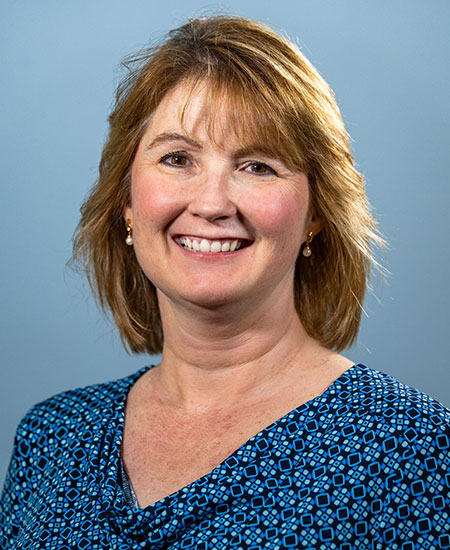Supply chains that were disrupted during the global health crisis are still facing huge challenges and are struggling to bounce back. Carol Chavez, Associate Director of Supply Chain Outreach and Corporate Engagement at the Gatton College of Business and Economics, is quoted in the news about the supply chain disruption. Chavez says these problems are teachable moments in the classroom and highlight the importance of supply chain professionals.
UK professor says supply chain situation could take two years to fix (Source: WYMT, October 19)
Some of you out there are asking, where’s my furniture I ordered months ago? Or, why are some of the shelves always empty at the store?
Well, it comes down to the current condition of the supply chain.
 Professor Carol Chavez teaches supply chain management at UK’s Gatton College of Business. She is teaching her class about a problem that effects us all, supply and demand, in real time.
Professor Carol Chavez teaches supply chain management at UK’s Gatton College of Business. She is teaching her class about a problem that effects us all, supply and demand, in real time.
Chavez says these problems are teachable moments and highlights the importance of supply chain professionals. The question is, why is a just in time supply chain not on time?
“It is absolutely a domino effect,” Chavez said. “We have lots of problems with the supply chain.”
Shortages of raw material, bottle necks in our transportation system, shortage of man power, particularly truck drivers, shortage of labor at the ports.
Supply chain issues could snarl holiday shopping, even for local businesses (Source: Local News 12, Cincinnati)
The holidays are on their way, whether you’re prepared or not. While you may have gotten away with last-minute shopping in the past, this year you might not be so lucky.
Supply chain issues are the Grinch this year and could prevent you from fulfilling promises under the tree. Even if you plan on shopping local, you still may run into issues.
There’s no doubt supporting your community is best done by shopping local, but just because a store is local doesn’t mean everything they source is. Their shelves could be empty too, so start that shopping...yesterday.
University of Kentucky supply chain professor Carol Chavez says there’s no better advice than shopping local, but you still need to be prepared for setbacks. First, local stores still may need supplies from overseas, and the increased prices will get passed onto the consumer.

